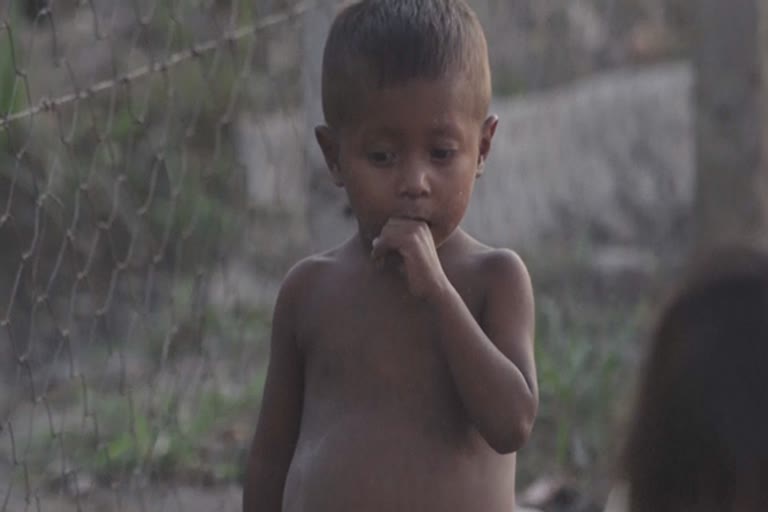Bogota, Colombia: Across Colombia's capital, Venezuelan children, including infants, spend hours at busy intersections while their migrant parents sell candy or ask motorists for a few coins to get through another day after fleeing their homeland in search of a better life.
The impact of Venezuela's devastating economic, social and political problems has rippled across Latin America and the Caribbean in recent years as more than three million people left the country.
As is the case in humanitarian emergencies around the world, it is the children who are most vulnerable.
About 1.1 million children will need access to services such as education, sanitation and safe drinking water across the region this year because of the Venezuelan migrant crisis, UNICEF (the United Nations International Children's Emergency Fund) says in a new report.
The UN children's agency said the projected figure is more than double the number of children who need such help right now, and expressed concern about reports of discrimination and violence against Venezuelan children and families.
On Thursday, about 20 Venezuelan babies and children were with their parents scrounging for handouts from passing vehicles at an intersection in Bogota.
The youngest child was only six days old, while the oldest six years old.
Toddlers played with toys or ate candy, seemingly oblivious to the roar of traffic around them.
Some motorists rolled down their windows to give out a few coins.
One of the migrants, Charlie Lopez, a 26-year-old Venezuelan at the Bogota intersection, said he feels his family, including partner Jennifer Salas, 27, and their three daughters, are better off in Colombia for now.
Lopez used to sell drinks and coconuts on the beach and worked in tourism in Venezuela, but opportunities dried up as hyperinflation hit, the economy tanked and social services collapsed.
"I hope that soon my country will get better and I'll be able to return to Venezuela."
"It's very difficult to get food, we only eat once a day but we have to get it for my daughters," he said.
"And here at least we do eat, some people help us, others no," Lopez added.
He said he arrived in Bogota two months ago.
Like many Venezuelans, Lopez walked over the border from Venezuela to the Colombian border city of Cucuta, scene of a February 23 attempt by Venezuelan opposition leader Juan Guaido to deliver US-provided humanitarian aid to his country.
That effort failed when Venezuelan President Nicolas Maduro ordered security forces to stop the aid, in an escalating political standoff that began when Guaido declared himself interim president in January and started a campaign to remove Maduro from power.
Oriana Garcia, 24, was with her six-year-old daughter Yoeximar Chirinos at the Bogota intersection.
Garcia said Venezuela wasn't "livable" at the moment and, like many migrants, she blamed Maduro for the country's problems.
She said some Colombians have treated her badly and others have been kind.
Also Read: Trump border visit in California sparks protests
UNICEF cited projections that up to 4.9 million people across the region — including Brazil, Colombia, Ecuador, Guyana, Panama, Peru, and Trinidad and Tobago — will need help this year because of "political and economic conditions inside Venezuela that are driving regional migration."
It urged governments to register children on the move, a step that guarantees their rights and helps in the planning and budgeting of an aid response.



